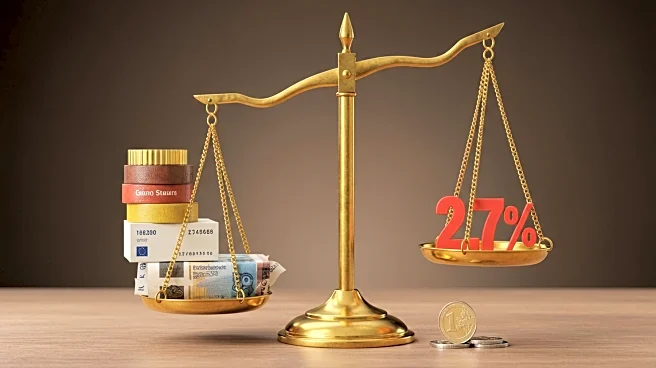What's Happening?
Inflation in the United States has increased by 2.7% compared to the previous year, according to a report by ABC News. This rise in inflation is impacting consumer prices, particularly for commodities such as beef and coffee. The report highlights the economic pressures faced by consumers as they navigate higher costs for everyday goods. The increase in inflation is part of a broader trend of rising prices that has been observed over the past year.
Why It's Important?
The rise in inflation has significant implications for the U.S. economy and consumers. Higher inflation can erode purchasing power, making it more expensive for consumers to buy goods and services. This can lead to changes in consumer behavior, such as reduced spending or shifts in purchasing priorities. Additionally, inflation can influence monetary policy decisions by the Federal Reserve, potentially leading to changes in interest rates. Businesses may also face increased costs, which could impact profitability and pricing strategies.
What's Next?
As inflation continues to rise, policymakers and economists will be closely monitoring its impact on the economy. The Federal Reserve may consider adjusting interest rates to manage inflationary pressures. Consumers and businesses will need to adapt to the changing economic environment, potentially altering spending and investment decisions. Ongoing analysis of inflation trends will be crucial in determining the appropriate policy responses to support economic stability.









